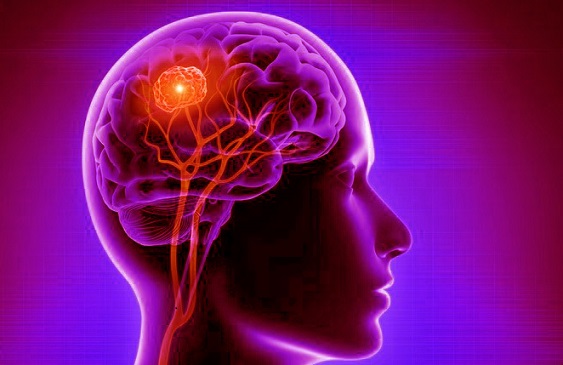Nikhil Prasad Fact checked by:Thailand Medical News Team Sep 09, 2025 5 months, 2 weeks, 1 day, 23 hours, 23 minutes ago
Medical News: A new direction in brain cancer research
Scientists from Zhejiang Key Laboratory of Organ Development and Regeneration at Hangzhou Normal University and the Key Laboratory of Specialty Agri-Product Quality and Hazard Controlling Technology of Zhejiang Province at China Jiliang University have made an important discovery in the battle against glioblastoma, one of the most aggressive brain cancers. They have identified an existing compound known as Methylstat as a potential new treatment option. This
Medical News report highlights how the compound works and why experts believe it could provide hope for patients facing this devastating disease.
 Methylstat Shows Promise in Slowing Deadly Brain Cancer
Why glioblastoma is so difficult to treat
Methylstat Shows Promise in Slowing Deadly Brain Cancer
Why glioblastoma is so difficult to treat
Glioblastoma is the most common form of malignant brain tumor in adults. It grows quickly, invades surrounding brain tissue, and resists most existing treatments. Current therapies usually involve surgery, chemotherapy, and radiation, but these approaches often fail to prevent recurrence. On average, patients diagnosed with glioblastoma survive just over a year, and new strategies are urgently needed.
How Methylstat works
The research team investigated Methylstat because it is a histone demethylase inhibitor, a type of drug that influences how genes controlling cell growth and division are switched on and off. In laboratory experiments, Methylstat significantly slowed the growth of glioma cells without damaging healthy brain cells. Instead of triggering cell death, the compound blocked the cancer cells from progressing through their normal life cycle, effectively freezing their ability to multiply.
Interestingly, the drug behaved differently depending on the type of glioma cells tested. In one cell line (U251), it caused a halt at the G1 stage, while in another (HOG), it stopped cells at the G2 phase. Both interruptions prevented the tumor cells from dividing, while normal brain cells remained mostly unaffected.
Targeting cancer pathways
The study showed that Methylstat works by disrupting important proteins called cyclins and cyclin-dependent kinases, which act like switches for cell division. It also activated protective genes such as p53 and p21, further tightening the block on tumor growth. Additionally, researchers discovered that Methylstat directly inhibited JMJD2A, a protein that promotes cancer growth through the AKT/mTOR signaling pathway. Advanced computer modeling confirmed that Methylstat binds firmly to JMJD2A and prevents it from functioning.
Crossing the brain’s protective barrier
One of the biggest challenges in brain cancer treatment is the blood–brain barrier (BBB), a natural shield that prevents many drugs from entering the brain. Using a laboratory model of this barrier, the team confirmed that Methylstat was able to penetrate it to a measurable degree. This property is critical if the drug is ever to be tested in patients, sinc
e many otherwise promising compounds fail at this stage.
A potential new therapy on the horizon
The results demonstrate that Methylstat has multiple strengths: it selectively blocks tumor cell division, spares normal brain cells, interferes with cancer-promoting pathways, and can cross into the brain. While these findings are still at the laboratory stage, they open the door for further research and possible clinical trials. If confirmed in future studies, Methylstat could become a valuable addition to the small list of treatment options available for glioblastoma patients.
The study findings were published in the peer reviewed journal: Pharmaceuticals.
https://www.mdpi.com/1424-8247/18/9/1344
For the latest on Glioblastoma, keep on logging to Thailand
Medical News.
Read Also:
https://www.thailandmedical.news/news/istradefylline-provides-new-hope-against-glioblastoma-
https://www.thailandmedical.news/news/napabucasin-shows-promise-for-glioblastoma
https://www.thailandmedical.news/news/university-of-mississippi-study-shows-that-juice-of-the-cornelian-cherry-can-help-with-glioblastoma
